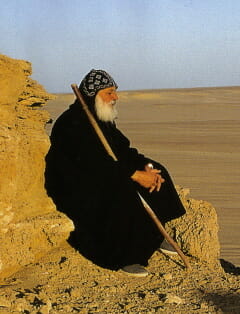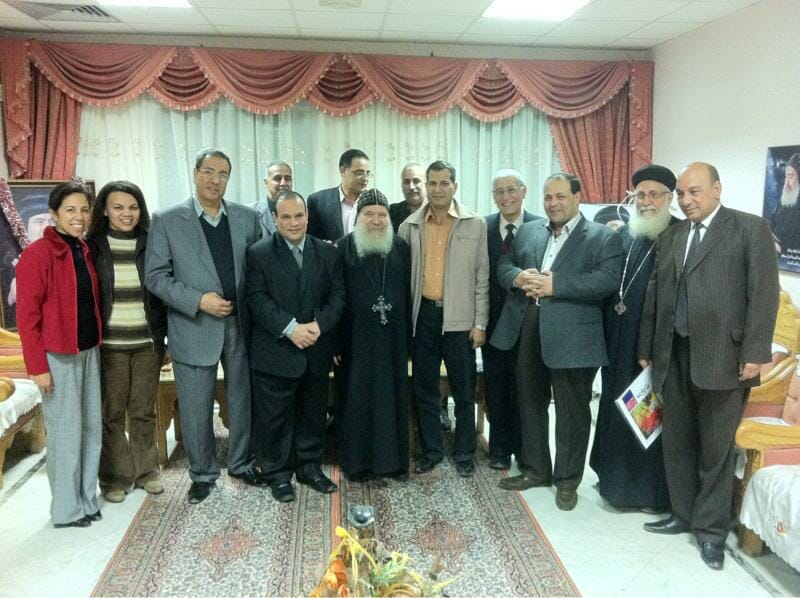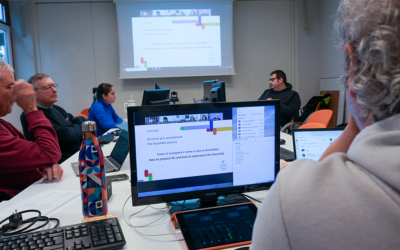 «Many have tried to explain the roots and reasons behind the start of monastic life, but the sayings and experiences of the Fathers show that the monks are “living martyrs,” and that they “abandoned the world to embrace the sole reality worth living for – God.” It is as if they wanted to respond to God’s love, which is fully described in a verse of the Coptic Mass we call the Divine Liturgy, which addresses God saying: “Of all the words said, there is nothing that can describe Your love for mankind.” St. Jerome says that their asceticism and life as hermits proclaim, “we have been struck by the darts of Divine love,” and each one repeats: “I have found what my soul longs for; I will hold on to it tightly and never leave it.” These monks, therefore, only wishing to give themselves completely to this love and to consecrate themselves to Him, had no choice but to leave the cities.
«Many have tried to explain the roots and reasons behind the start of monastic life, but the sayings and experiences of the Fathers show that the monks are “living martyrs,” and that they “abandoned the world to embrace the sole reality worth living for – God.” It is as if they wanted to respond to God’s love, which is fully described in a verse of the Coptic Mass we call the Divine Liturgy, which addresses God saying: “Of all the words said, there is nothing that can describe Your love for mankind.” St. Jerome says that their asceticism and life as hermits proclaim, “we have been struck by the darts of Divine love,” and each one repeats: “I have found what my soul longs for; I will hold on to it tightly and never leave it.” These monks, therefore, only wishing to give themselves completely to this love and to consecrate themselves to Him, had no choice but to leave the cities.
St. Basil clearly announced: “Whoever loves God leaves all and goes towards Him.” And it is said that St. Tawadros, disciple of St. Pachomius, “had only one interest in the world – to love God with all his heart by following the command of Jesus Christ.” We can sense that the root of ascetic life is to resemble Christ: completely stripping oneself of all things, and following the Father’s will which is virginity, in continual contact with God the Father through prayer. Fr. Matta El Meskin explained it thoroughly: “The warranty of our consecration (as monks) lies in our holding on to Christ personally, and following the Bible’s teachings. In this way, with Christ and the Bible, we will be able to pursue our path in continuous growth, to the very end.”
The choice of the consecrated person is to follow Jesus, the “Way, the Truth and the Life.” This means living for Christ and for him alone and following him in his lifestyle. He chose poverty, virginity and obedience. The monk, therefore, does not choose poverty, but Christ the poor one. The choice is the person of Jesus himself, and so, of what Christ lived, and the how and why he lived in this way. As for the communitarian aspect in the ascetic life of the desert monks, let us recall how – for example in the monasteries that followed after St. Pachomius – the life of communion became the extension of the primitive Church during the time of the apostles. Looking at the life of the Fathers, we can trace some communitarian characteristics: mutual love (St. Pachomius always exhorted his disciples to love one another, and that it was due to the charity among the monks that this life spread and continued up to today), and life together (the dominant feature of these first Christian communities was the “sharing of all they had” in all the aspects of the monks community life).
The teachings of the Desert Fathers remind me about the meditation of Chiara Lubich, “The great attraction of modern times,” which fully expresses what I feel: “To penetrate to the highest contemplation, while mingling with everyone.” It is a contemplation that actualises the life of the Fathers in this century, but in the midst of the world.
T he spiritual presence of Jesus in our midst with the Catholic focolarine with whom I live in the Focolare Centre in Sohag, and the commitment to love each other, have made us like real sisters and caused us to experiment the joy of the Risen Lord, beyond all our differences. In our daily life we share everything we have: we pray, work, rejoice and share the moments of suffering of the people around us. We try to bear witness through our lives, that God is love.
he spiritual presence of Jesus in our midst with the Catholic focolarine with whom I live in the Focolare Centre in Sohag, and the commitment to love each other, have made us like real sisters and caused us to experiment the joy of the Risen Lord, beyond all our differences. In our daily life we share everything we have: we pray, work, rejoice and share the moments of suffering of the people around us. We try to bear witness through our lives, that God is love.
Living for the fullness of unity in Christ’s Church “that all may be one,” fascinates me more and more. I rejoice about the beauty and variety of the gifts of God I find in the various Churches, and the aspiration and emotion of seeing that we are united in Christ in our midst and in the future of the Church in God’s design.
My country also testifies to this with the big and small steps taken along the ecumenical journey. For example, there is now an ecumenical commission which was formed some years ago, with people of every Christian confession existing in Sohag. We meet in a different Church every time: this year it will be in the Coptic Orthodox Church. On 5 March almost all the local heads of the churches were present. The main theme was “the victory over evil,” starting from the persecution of Christians in Libya, which traces the steps of the people of Israel on their departure from Egypt. «The flag that flies above us is that of God’s love,» affirmed the Coptic Orthodox Bishop Bakhoum, who wished that all those present «will always meet in Love.»




0 Comments